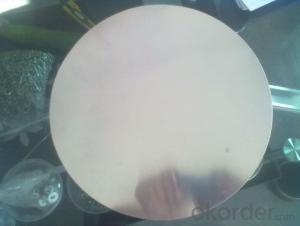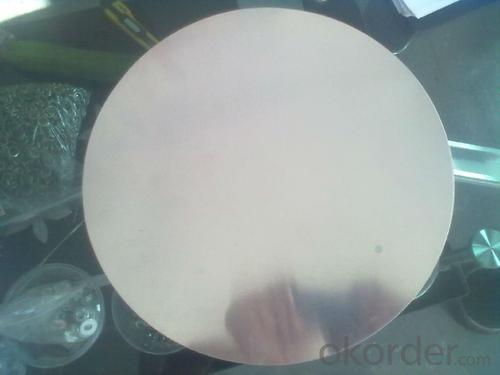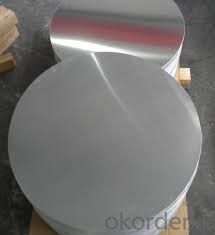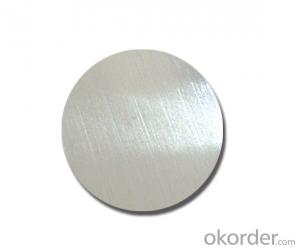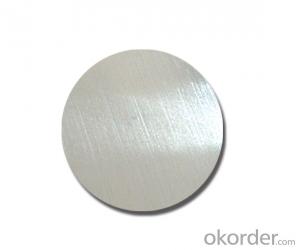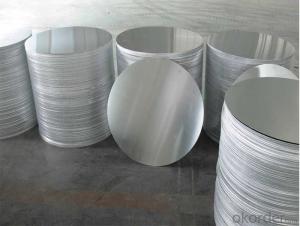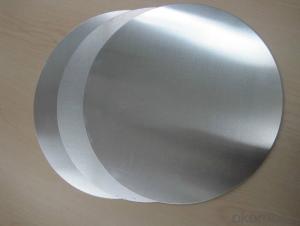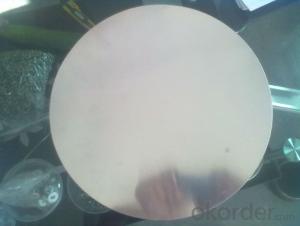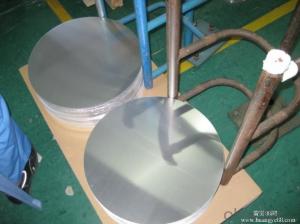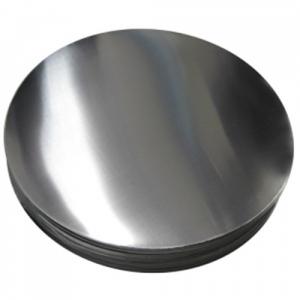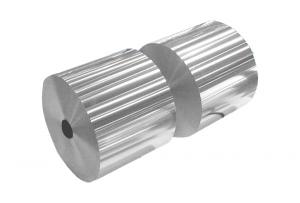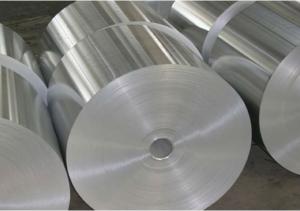Aluminum AA1060 Mill Finished Aluminum Circles for Cookware
- Loading Port:
- Shanghai
- Payment Terms:
- TT OR LC
- Min Order Qty:
- 3 m.t.
- Supply Capability:
- 1000 m.t./month
OKorder Service Pledge
OKorder Financial Service
You Might Also Like
Specification
1.Structure of AA1060 Mill Finished Aluminum Circles Used for Cookware Description
AA1060 Mill Finished Aluminum Circles Used for Cookware is made from aluminum coils 1xxx. AA1060 Mill Finished Aluminum Circles Used for Cookware has great ductility, heat conductivity, anti-corrosion and moisture resistance properties.
AA1060 Mill Finished Aluminum Circles Used for Cookware are widely used for kitchen wares including fried pans, non-sticky pans, cooking pots,hard anodized cookware, pressure cooker and house hold utensils.
2. Main features of AA1060 Mill Finished Aluminum Circles Used for Cookware
a.Competitive price---We have our own mills and can produce mill finished aluminium coils, so we can control the production cost better.
b.Professional after-sale service---We have more than 15 years exportation experience and you need not worry about the exporation problems.
c.Fast delivery time---We can control the delivery time within 35 days.
3.AA1060 Mill Finished Aluminum Circles Used for Cookware Images
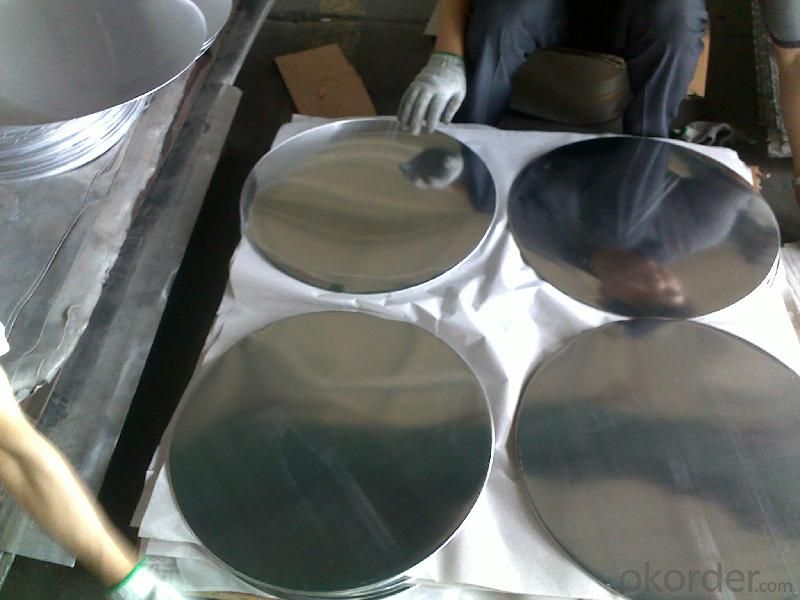
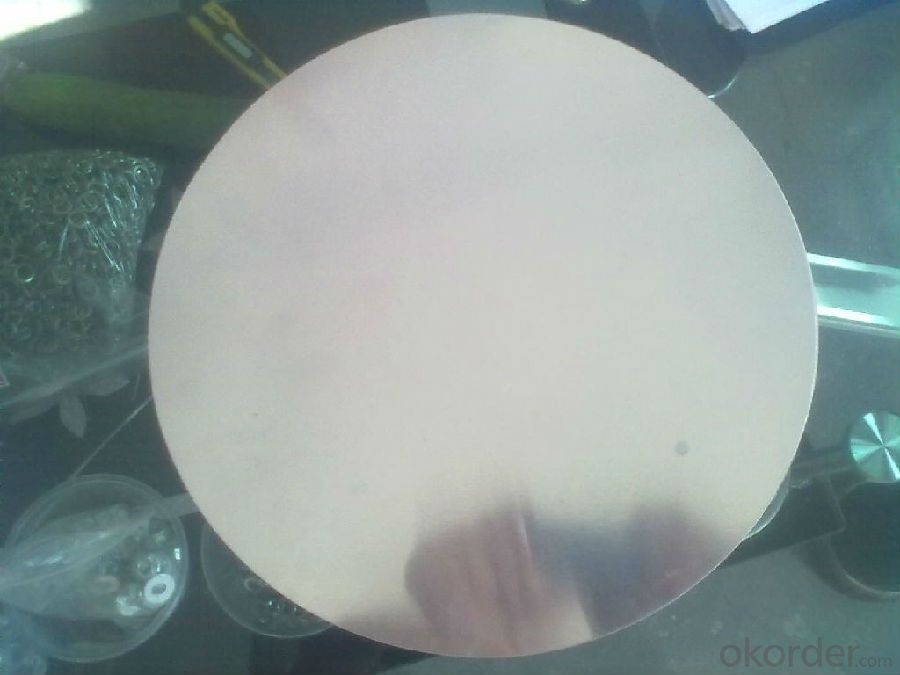
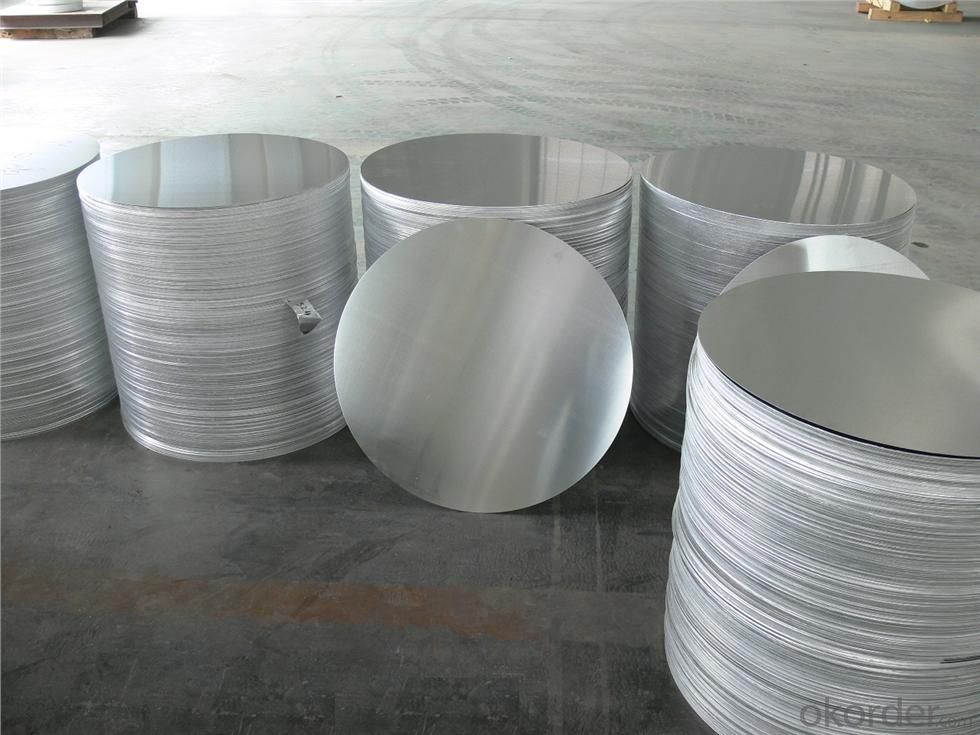
4.AA1060 Mill Finished Aluminum Circles Used for Cookware Specification
Alloy | AA1060 |
Temper | H14, H16, H18, H22, H24, H26, H32, O/F |
Thickness | 0.5mm -- 4mm |
Diameter | 200mm -- 1200mm |
Standard | GB/T 3880-2006 |
5. FAQ of AA1060 Mill Finished Aluminum Circles Used for Cookware
A.How to guarantee the quality?
Customers are welcome to our mill to visit and check the products. Besides, we can arrange a third party to test AA1060 Mill Finished Aluminum Circles Used for Cookware.
B.When will you deliver the products?
AA1060 Mill Finished Aluminum Circles Used for Cookware will be delivered within 35 days after receiving advanced payment or original L/C.
- Q: This question asks for recent applications of aluminum in the construction industry.
- <p>Aluminum has found new uses in construction due to its lightweight, durability, and sustainability. It's used in curtain walls, window frames, and doors for its strength and resistance to corrosion. Aluminum is also utilized in modular construction, where prefabricated components can be quickly assembled on-site. Its high thermal conductivity makes it suitable for energy-efficient building envelopes. Additionally, aluminum's recyclability and low environmental impact make it a popular choice for green buildings. New technologies have also enabled the use of aluminum in 3D-printed structures, offering innovative design possibilities.</p>
- Q: Describe the environmental impact of discarded aluminum.
- <p>Discarded aluminum can have significant environmental impacts. It contributes to land and water pollution, as it does not biodegrade and can leach harmful substances into the soil and water. Additionally, aluminum can disrupt the food chain when ingested by wildlife, potentially leading to health issues. The production of aluminum is energy-intensive, so recycling it reduces the demand for raw materials and decreases greenhouse gas emissions. However, improper disposal can lead to the release of toxic substances during the recycling process, further harming the environment.</p>
- Q: This question asks for examples of industrial processes that incorporate the use of aluminum.
- <p>Aluminum is widely used in various industrial processes due to its lightweight, corrosion resistance, and high strength-to-weight ratio. Some key industrial processes that utilize aluminum include the automotive industry for manufacturing car parts, the aerospace industry for aircraft construction, the construction industry for building materials, the packaging industry for food and beverage cans, and the electronics industry for components in devices. Aluminum is also used in the manufacturing of machinery, electrical equipment, and transportation equipment. Its versatility makes it a crucial material in many industrial applications.</p>
- Q: This question asks about the reactivity of aluminum with various substances, including its chemical reactions and properties.
- <p>Aluminum is a highly reactive metal that readily reacts with oxygen to form a protective layer of aluminum oxide on its surface. It can also react with acids, such as hydrochloric or sulfuric acid, to produce hydrogen gas and aluminum salts. In the presence of a strong base, aluminum can react to form aluminates and hydrogen gas. Additionally, aluminum can reduce certain metal oxides, such as iron oxide, in a thermite reaction. However, due to its reactivity, aluminum is often used in alloys with other metals to improve its strength and corrosion resistance.</p>
- Q: What are the potential health advantages of minimizing contact with aluminum?
- <p>Reducing exposure to aluminum may have health benefits, particularly in terms of neurological health. Aluminum has been linked to neurodegenerative diseases like Alzheimer's, although the evidence is not conclusive. Lowering exposure could potentially reduce the risk of cognitive decline. Additionally, aluminum may affect bone health and the immune system, so minimizing contact could support stronger bones and a more robust immune response. However, it's important to note that aluminum is naturally present in many foods and water sources, and moderate exposure is generally considered safe by health authorities.</p>
- Q: Is it possible to utilize recycled aluminum to manufacture new items?
- <p>Yes, recycled aluminum can be used to make new products. It is an environmentally friendly and cost-effective process. Recycling aluminum conserves energy, as it requires only 5% of the energy needed to produce new aluminum from raw materials. Recycled aluminum maintains its properties, making it suitable for various applications, including automotive parts, construction materials, and consumer goods. The process also reduces waste and greenhouse gas emissions, contributing to sustainability efforts.</p>
- Q: Is aluminum a component in the manufacturing processes of glass and ceramics?
- <p>Aluminum can be used in the production of glass and ceramics, although it is not a primary component. In glassmaking, aluminum is sometimes added to reduce the coefficient of expansion, making the glass more resistant to thermal shock. It can also improve the chemical durability and electrical insulation properties of the glass. In ceramics, aluminum compounds are used as opacifiers, colorants, or to enhance the mechanical properties of the final product. However, the use of aluminum in these industries is typically in small quantities and serves specific purposes rather than being a fundamental part of the material composition.</p>
- Q: Is aluminum a suitable material for constructing aerospace structures?
- <p>Yes, aluminum is widely used in aerospace structures due to its high strength-to-weight ratio, corrosion resistance, and ease of fabrication. It is particularly favored for aircraft frames, wings, and fuselage components. Aluminum alloys are also used in spacecraft and satellite structures for their lightweight properties and ability to withstand extreme temperatures.</p>
- Q: Is aluminum a suitable material for use in electronic components or devices?
- <p>Yes, aluminum is used in electronics, primarily for its excellent thermal conductivity and electrical conductivity. It is commonly used in heat sinks to dissipate heat from electronic components, such as CPUs and power transistors. Additionally, aluminum is utilized in capacitors and as a conductor in wiring due to its low electrical resistance. However, it is not used as widely as copper for electrical conductivity applications due to copper's superior properties.</p>
- Q: Is it safe to utilize aluminum cookware in a microwave oven, considering potential hazards or damage?
- <p>Using aluminum pots and pans in a microwave oven is not recommended. Aluminum can cause sparks and potentially start a fire, as microwaves can reflect off metal surfaces and damage the microwave. Additionally, aluminum may not distribute heat evenly, leading to uneven cooking. It's safer to use microwave-safe cookware, such as glass or ceramic dishes, which are designed to withstand microwave heating without risk.</p>
Send your message to us
Aluminum AA1060 Mill Finished Aluminum Circles for Cookware
- Loading Port:
- Shanghai
- Payment Terms:
- TT OR LC
- Min Order Qty:
- 3 m.t.
- Supply Capability:
- 1000 m.t./month
OKorder Service Pledge
OKorder Financial Service
Similar products
Hot products
Hot Searches
Related keywords
